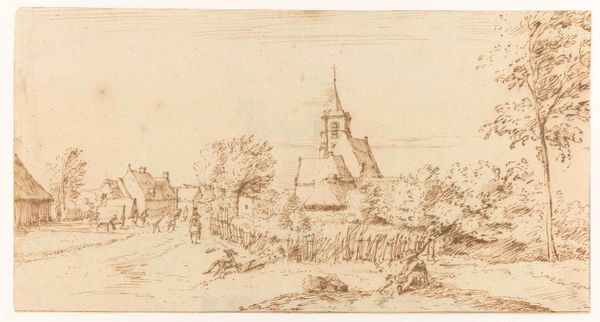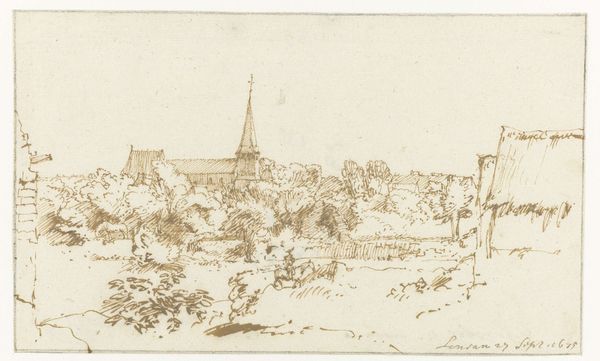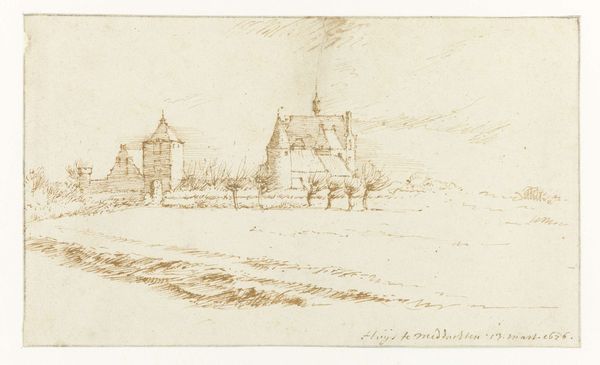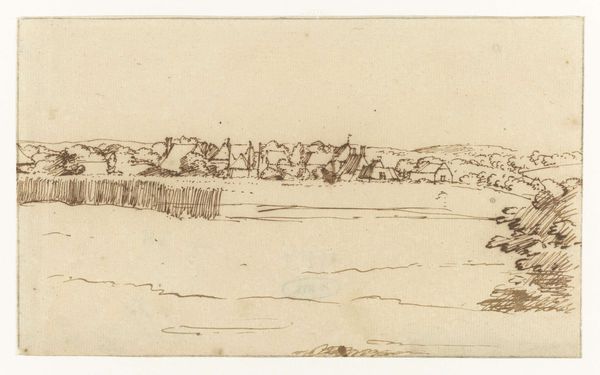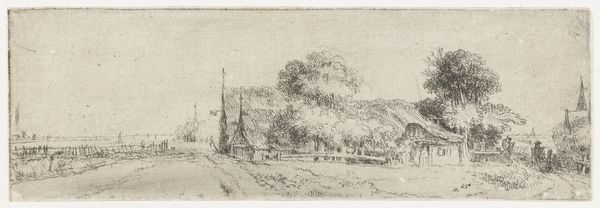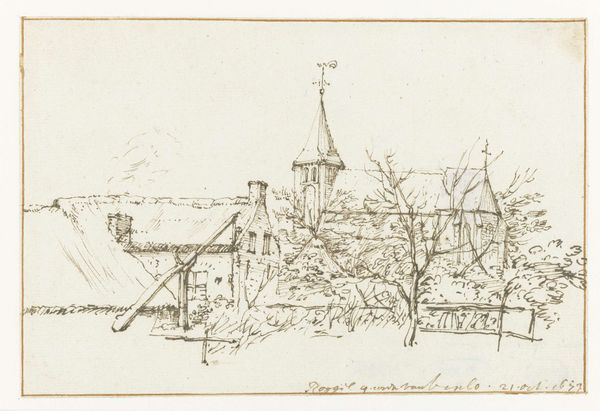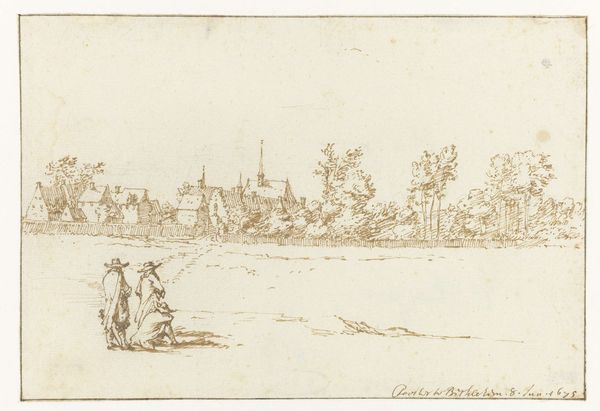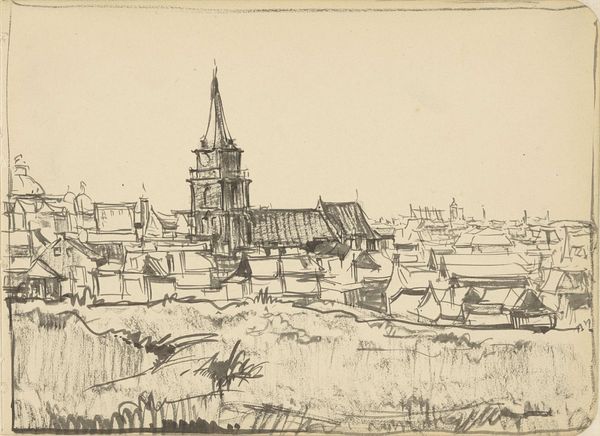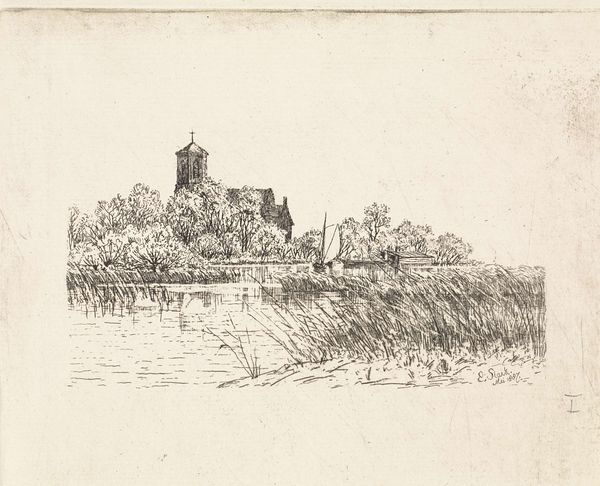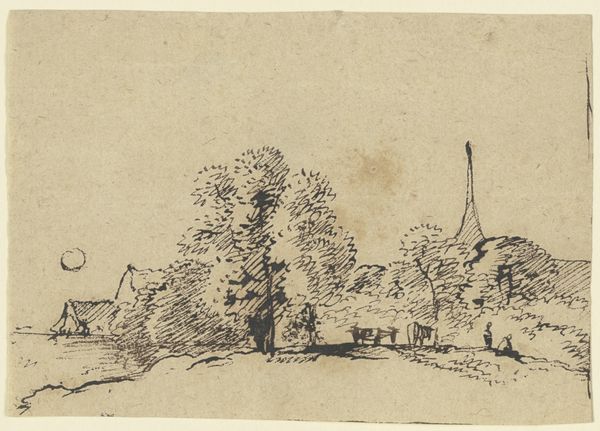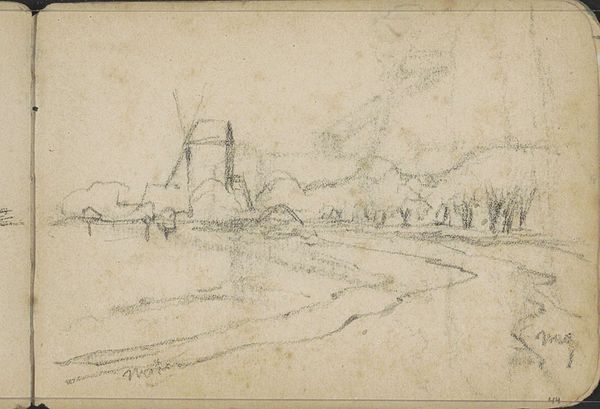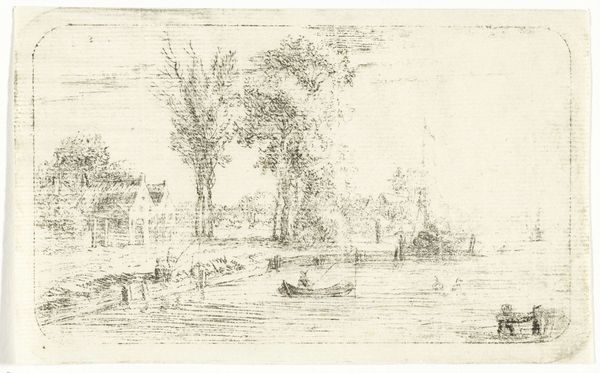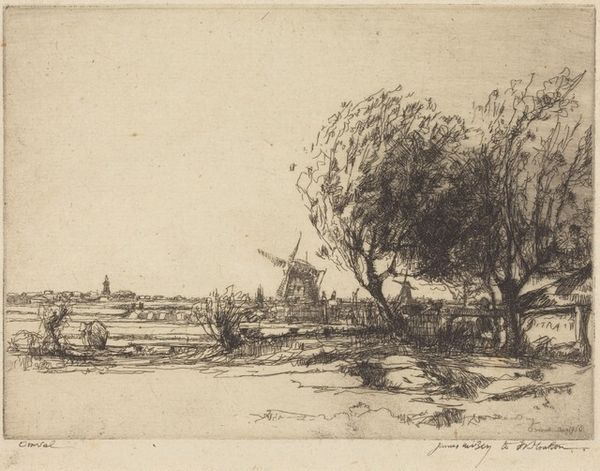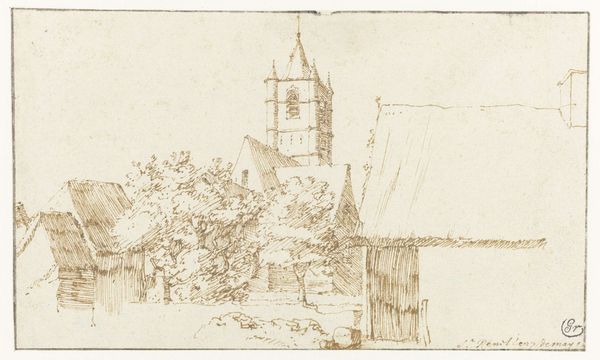
drawing, ink, pen
#
drawing
#
dutch-golden-age
#
pen sketch
#
landscape
#
etching
#
ink
#
pen-ink sketch
#
pen
#
cityscape
Dimensions: height 112 mm, width 164 mm
Copyright: Rijks Museum: Open Domain
Constantijn Huygens created this drawing of Chaumont in 1675 using pen in brown ink. The church’s spire, topped with what appears to be a weather vane, rises above the simple dwellings, drawing our eye upwards. Such spires are not merely architectural; they are symbolic echoes. Consider the obelisks of ancient Egypt, their towering forms similarly reaching for the heavens, representing a connection between the earthly and the divine. This reaching, this striving, is a recurring motif in the human psyche. We see it echoed in the minarets of Islam, in the stupas of Buddhism—each a variation on the theme of aspiration. The spire in Huygens' drawing is a Christian symbol, a physical manifestation of faith's upward trajectory. And what of the weather vane? A symbol of navigation, guidance, and perhaps the fickleness of fate. These symbols speak to our collective unconscious, resonating with our deepest longings and fears. They are timeless reminders of our place in the cosmos, our eternal quest for meaning.
Comments
No comments
Be the first to comment and join the conversation on the ultimate creative platform.
